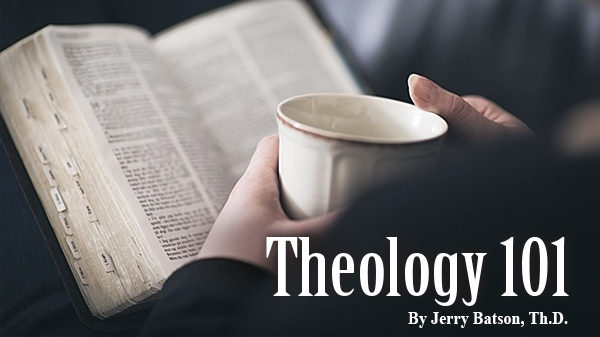Soteriology
By Jerry Batson, Th.D.
Special to The Alabama Baptist
The Bible speaks of salvation in two ways — in terms of a spiritual birth with a new heart and new spirit and as adoption into God’s family.
When looking at salvation as a new birth there also is an emphasis on new nature. And in looking at salvation as adoption there also is an emphasis on our legal status in God’s family.
Legal right
We hear these emphases in our reading about saving faith in John 1:12: “As many as received Him, to them He gave the right to become children of God, to those who believed in His name.”
By adoption we understand that a legal right has been granted us. So as Christians we not only possess the renewed nature of a child of God but also legal standing as an heir. The most complete statement of adoption is found in Galatians 4:4–7: “When the fullness of the time had come, God sent forth His Son, born of a woman, born under the law, to redeem those who were under the law, that we might receive the adoption as sons. And because you are sons … you are no longer a slave but a son, and if a son, then an heir of God through Christ.”
‘Joint heirs with Christ’
Being children of God by adoption also is found in Romans 8:16–17: “The Spirit Himself bears witness with our spirit that we are children of God, and if children, then heirs — heirs of God and joint heirs with Christ.”
People living in the Roman world would likely have been familiar with Roman regulations concerning adopted sons (daughters might be adopted as well but was apparently infrequent).
If a Roman father did not have a biological son and chose to adopt a boy as his son, that adopted son had all the legal standing in the family as a natural born son would have. Quite often the adopted son was from a slave family. Adoption immediately lifted the adopted son out of the ranks of slavery and gave him social standing. More than that, Roman adoption law provided that an adopted son could not be disowned, having been freely screened and chosen by the adoptive parents. An adopted son gained not only new status but also full legal rights to the family inheritance.
Ancient Roman adoption laws furnished a good illustration of the permanence of a believer’s place in God’s family. Since by adoption God has made believers His children with full legal standing, we are joint heirs with Christ.
Salvation as adoption not only looks back to Christian conversion, but it also looks forward. Romans 8:23 put it like this: “We ourselves groan inwardly, eagerly waiting for the adoption, the redemption of our body.”
Membership becomes complete
Under the analogy of salvation as adoption, we are able to say we have been adopted and we also are awaiting adoption.
Membership in God’s family will be brought to completion when the spiritual membership also becomes a physical one through a resurrection body like Christ’s resurrection body. We might say that at this future time we receive the full benefits of adoption by having new resurrection bodies.
Philippians 3:20–21 tells us, “Our citizenship is in heaven, from which we also eagerly wait for the Savior, the Lord Jesus Christ, who will transform our lowly body that it may be conformed to His glorious body.”
EDITOR’S NOTE — Jerry Batson is a retired Alabama Baptist pastor who also has served as associate dean of Beeson Divinity School at Samford University and professor of several schools of religion during his career.



Share with others: